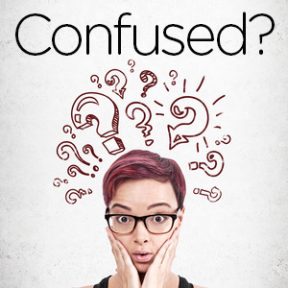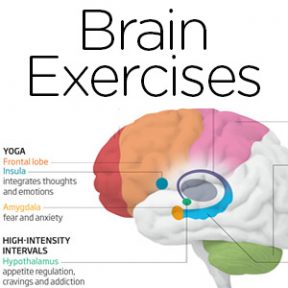 I just read a fascinating article “A History of Punctuation for the Internet Age” in The New Yorker. As you probably already know, I’m a stickler for punctuation. Without it, I find it frustrating to understand the author’s point of view. According to author David Crystal, Making a Point: The Persnickety Story of English Punctuation, proper use of punctuation shows our identity as educated people. So people who don’t punctuate properly, actually bring attention to their lack of education. Hmmm.
I just read a fascinating article “A History of Punctuation for the Internet Age” in The New Yorker. As you probably already know, I’m a stickler for punctuation. Without it, I find it frustrating to understand the author’s point of view. According to author David Crystal, Making a Point: The Persnickety Story of English Punctuation, proper use of punctuation shows our identity as educated people. So people who don’t punctuate properly, actually bring attention to their lack of education. Hmmm.
Way back when, words ran together without spaces between them:
youdontevenneedspacesbetweenwordsreally
Then back in Old English manuscripts, people started to capitalize the beginnings of each new word to indicate that there was a new word. So the evolution of punctuation started like this:
YouDontEvenNeedSpacesBetweenWordsReally
With the advent of the printing press, a standardized punctuation system was developed:
To mark the beginnings of new words
In 2007, computer texting incorporated abbreviations and numbers:
Txt msg 2 N8 the Gr8 LOL
In 2014, cell phone technology provided spell check so texting abbreviations died out, but punctuation was still conspicuously missing:
Ya that’s pretty close to me I can do that
When parents started using the same abbreviations and truncated writing styles that their kids used, a funny thing happened: the kids stopped abbreviating! LOL, jk!
The English language will continue to evolve with each new generation, and who knows, maybe someday good ol’ traditional punctuation will become popular again. I suspect that if it does, communication between people will vastly improve.
 I just read a fascinating article “A History of Punctuation for the Internet Age” in The New Yorker. As you probably already know, I’m a stickler for punctuation. Without it, I find it frustrating to understand the author’s point of view. According to author David Crystal, Making a Point: The Persnickety Story of English Punctuation, proper use of punctuation shows our identity as educated people. So people who don’t punctuate properly, actually bring attention to their lack of education. Hmmm.
I just read a fascinating article “A History of Punctuation for the Internet Age” in The New Yorker. As you probably already know, I’m a stickler for punctuation. Without it, I find it frustrating to understand the author’s point of view. According to author David Crystal, Making a Point: The Persnickety Story of English Punctuation, proper use of punctuation shows our identity as educated people. So people who don’t punctuate properly, actually bring attention to their lack of education. Hmmm.
Way back when, words ran together without spaces between them:
youdontevenneedspacesbetweenwordsreally
Then back in Old English manuscripts, people started to capitalize the beginnings of each new word to indicate that there was a new word. So the evolution of punctuation started like this:
YouDontEvenNeedSpacesBetweenWordsReally
With the advent of the printing press, a standardized punctuation system was developed:
To mark the beginnings of new words
In 2007, computer texting incorporated abbreviations and numbers:
Txt msg 2 N8 the Gr8 LOL
In 2014, cell phone technology provided spell check so texting abbreviations died out, but punctuation was still conspicuously missing:
Ya that’s pretty close to me I can do that
When parents started using the same abbreviations and truncated writing styles that their kids used, a funny thing happened: the kids stopped abbreviating! LOL, jk!
The English language will continue to evolve with each new generation, and who knows, maybe someday good ol’ traditional punctuation will become popular again. I suspect that if it does, communication between people will vastly improve.
Both the CSU and UC applications are available online, and you can start submitting applications on Nov 1st. If you’re wondering whether you’ve satisfied your math or language (other than English) requirements, check out this chart for easy and clear explanations. If you skipped Algebra 1 or Spanish 1, but you took Algebra 2 or Spanish 2, you don’t need to retake the lower classes because you’ve demonstrated that you have the conceptual knowledge because you passed the higher classes. But, this is not the same for Geometry. Even if you took Precalculus, it would not validate your Geometry requirement. ARGH!
Take the time to review this chart to ensure that you have satisfied all of the requirements.
Are you confused about calculating your GPA when you repeated a class? Not sure if you average or replace the grades? The answer is different between the CSUs and the UCs. The CSUs allow you to retake courses several times and will calculate just your highest grade, while UCs will only allow you to retake the course once.
[Source]
 I still remember the Loma Prieta Earthquake that shook our home, and our lives, at 5:04 pm, 27 years ago today. I was holding Jaclyn, who was 7 months old, and talking to Nicole’s preschool teacher, Danielle. A native Californian, I grew up with earthquakes and they never bothered me until this one. After 5 seconds of rumbling, I realized that this was no ordinary earthquake because the intensity increased and glass started to break and furniture began to fall over. We were standing in the middle of the rec room on the first floor and I realized that it wasn’t going to stop anytime soon. I tossed Jaclyn under the table with Danielle while I headed upstairs to get 4-year-old Nicole.
I still remember the Loma Prieta Earthquake that shook our home, and our lives, at 5:04 pm, 27 years ago today. I was holding Jaclyn, who was 7 months old, and talking to Nicole’s preschool teacher, Danielle. A native Californian, I grew up with earthquakes and they never bothered me until this one. After 5 seconds of rumbling, I realized that this was no ordinary earthquake because the intensity increased and glass started to break and furniture began to fall over. We were standing in the middle of the rec room on the first floor and I realized that it wasn’t going to stop anytime soon. I tossed Jaclyn under the table with Danielle while I headed upstairs to get 4-year-old Nicole.
Although the earthquake lasted 45 seconds, it seemed like 2 minutes! I had to hang on to the handrail as I climbed the stairs because I was being tossed around. The potted plants that lined the banister above, flew down the stairs and on top of me as I called for Nicole. She was taking a nap and she slept through the whole earthquake. When Nicole finally heard me, she navigated down the hallway barefooted stepping over and around all of the broken glass from the photo frames. She was traumatized. As we exited the house through the garage, we saw all of our cabinets strewn across the floor.
Standing outside, we watched the hillside behind our neighbor’s house crumble, blocking them in with huge boulders. Rob was at his office on 7th Avenue and he managed to get a call to us to make sure we were okay, and then the phone lines went dead. In his Jeep, he drove over downed trees and through utter chaos to get home. We slept in our van for 3 nights, and then went to Hawaii to escape the thousands of aftershocks. Nicole said she’d rather have volcanoes over earthquakes any day! After geologists tested the soil behind our property, we had to evacuate and move to Pasatiempo where we lived for 3 years while we removed a boulder that stood right above Nicole’s bedroom. The girls slept under our bed where they felt safe and close to us. What a nightmare.
It’s time to check our earthquake kit again! We forgot about our earthquake supplies and when Rob checked it 5 years ago, he found diapers in it! Our girls were away at college. Oops! Now that we have puppies, we’ll need to add dog food. I hope that we never experience another earthquake like Loma Prieta again.
 If Einstein created a monster by showing how to split the atom, will we regret unleashing CRISPR?
If Einstein created a monster by showing how to split the atom, will we regret unleashing CRISPR?
One of my students came to me completely freaked out one day. We were at the brainstorming stage of ProjectMERIT and she was looking to do a project that could possibly save the world — from human destruction. She had just learned about CRISPR, a gene-editing technology that may revolutionize medicine, healthcare, food production and more. So why was she freaking out? She is smart enough to know that just because we now have the ability to split our DNA, splice it, and edit it in a multitude of ways, doesn’t mean that people will do only good things with this technology. She’s 16 years old and she figured this out on her own.
Remember one of Albert Einstein’s biggest regrets after he discovered how to split the atom? Einstein said, “I’ve created a MONSTER!” Just because you can do something doesn’t mean that you should. And therein lies the ethical dilemma with CRISPR. It is relatively easy to use and is inexpensive because experiments can be done much quicker than with other technology.
Today, universities across the globe have CRISPR and there is an “unwritten agreement” in the academic world that it will be used in positive ways (curing disease, reducing pests) and will not be used to do unethical things (cloning humans).
But not all scientists and people share the same ethical protocol that colleges do. In 2015, Chinese scientists claimed to have edited human genes using CRISPR to develop treatment for incurable diseases. Now, the world is worried that China may be trying to clone humans.
While it’s exciting to see the possibilities for curing disease, I agree with my 16-year old student that controlling how CRISPR is used will be difficult to do. Like Einstein’s regret, I wonder what the real stakes in gene editing are going to be once CRISPR is available to everyone.
 Don’t buy antibacterial soap! See what Natalie did to get this movement going!
Don’t buy antibacterial soap! See what Natalie did to get this movement going!
Stop using and buying antibacterial soap! Why? Because it doesn’t kill more germs than regular soap. Yup! One of my students, Natalie Kassel, set out to get all public schools in Santa Cruz County to switch from using antibacterial soap to regular soap back in 2008. She created an educational outreach program, worked with the press, and stood on a soap box (no pun intended!) to educate the public. What’s really exciting today is that the Food and Drug Administration finally – albeit 8 years later – stated that “…they (antibacterial soap) do little or nothing to make soap work any better and the industry has failed to prove they’re safe.”
Triclosan and triclocarban are the ingredients that are used in over 2,000 antibacterial soaps and products. The FDA is giving soapmakers one year to remove these ingredients from their soaps. YES! I’m so proud of Natalie for starting a movement here in Santa Cruz way back in 2008.
The FDA says that washing with plain soap and running water remains one of the most important steps consumers can take to avoid getting sick and to prevent spreading germs to others. And good ol’ Ivory or other soaps are a lot less expensive, too!
 So it’s been 5 weeks since we’ve become owners of TWO 11-week old puppies.
So it’s been 5 weeks since we’ve become owners of TWO 11-week old puppies.
If you missed that blog, check it out here. I’ll have to admit that it did take me a few days – weeks – to adjust to having an equivalent of 2 infants without any warning or preparation. But, I forgot how wonderful it is to be greeted by happy pups as they race and fumble with wagging tails towards you every time you enter the room.
And it’s fun to teach them little tricks because they learn so fast and they’re so eager to please. I think my favorite part is cuddling with them because they just love to be held, and I know this is a short-lived activity considering that they’re a black lab and German Shepherd mix.

 Now that scientific research studies indicate that specific types of exercise affect specific parts of the brain – focusing, memory, executive functioning skills – it’s time to rethink mandatory PE in our K-12 curriculum. I just blogged about the amazing benefits aerobics and weight training have for adults. Kids should exercise for at least 20 minutes each school day to improve their learning capabilities and memories.
Now that scientific research studies indicate that specific types of exercise affect specific parts of the brain – focusing, memory, executive functioning skills – it’s time to rethink mandatory PE in our K-12 curriculum. I just blogged about the amazing benefits aerobics and weight training have for adults. Kids should exercise for at least 20 minutes each school day to improve their learning capabilities and memories.
I recommend that my high school students do hardcore aerobics for 20-30 minutes before taking the SATs or ACTs. Besides waking them up, exercising gets their blood flowing throughout their teenage bodies and THEIR BRAINS, which according to recent studies shows immediate improvement in attention, executive functioning, and achievement in math and reading tests.
Charles Hillman at the Univ. of Illinois at Urbana-Champaign recommends that schools consider organizing their bell schedules for students around the students’ need to have at least one hour of exercise per day. He says that it’s best to spread that hour over the course of the school day to help keep students focused and to promote learning because the long-term effect of aerobic exercise has yet to be determined.
While you might think that if aerobics is good for attention in the short term, then practicing skills for a sport would should be incorporated in the plan, research shows that this is not true. When kids practice specific sports skills just before taking a test that requires sustained focus, these kinds of exercise actually reduce the students’ ability to focus on the test. Oops!
But don’t pull your child off her favorite team just yet. Maria Chiara Gallota at the Univ. of Rome found that doing coordinative exercises 2 times per week over 5 months really does improve their ability to concentrate and ignore distractions. So what does this mean? You don’t want them to do intense training before a test.
Hillman suggests that students who exercise regularly have a larger hippocampus and basal ganglia, which means that they perform better on attention tests. These students are more attentive, have goal-directed behavior, and strong executive functioning skills. So they should indeed continue to play sports and work on improving specific techniques. Just schedule practices and trainings when they don’t need to be preparing for a test.
It would be ideal for students to have time to run around the building between classes and before big tests. They’ll learn more, perform better, and probably be more attentive in the class.
 We all know that we should exercise every day to stay healthy and fit. Right? And if you’re like me, you’ve got a million excuses why you simply can’t do it… EVERY DAY! Well, now there’s scientific research that shows that different kinds of exercises affect different parts of your brain – not just your muscles and cardiovascular system. What’s really exciting about these studies is that you can improve your memory, complex thinking, attention, and more by doing specific types of exercise. Do I have your attention now?
We all know that we should exercise every day to stay healthy and fit. Right? And if you’re like me, you’ve got a million excuses why you simply can’t do it… EVERY DAY! Well, now there’s scientific research that shows that different kinds of exercises affect different parts of your brain – not just your muscles and cardiovascular system. What’s really exciting about these studies is that you can improve your memory, complex thinking, attention, and more by doing specific types of exercise. Do I have your attention now?
When I read that Univ. of British Columbia, Univ. of Groningen (Netherlands), Univ. of Illinois at Urbana-Champaign, and Massachusetts General Hospital that studied specific exercise regimens and found that you can improve your memory and critical thinking skills by exercising specific parts of your brain, I was so excited I wanted to lay out a plan right then. And, of course, that was at 3:00 am!
So what kinds of exercise should you do?
Aerobic Exercise: Running and cycling 3-4 times per week (30 min. each)
— Increases hippocampus, which promotes new neuron growth
— Improves verbal memory (words on the tip of your tongue)
— Reverses shrinking of hippocampus (cause of memory loss)
— Staves off Alzheimer’s disease and other dementia
— Combine Aerobics with Weight training to boost results even more!
Weight Training: Lifting weights 2 times per week (an hour each)
— Improves executive functioning skills (problem solving, reasoning, and planning)
— Improves associative memory (link faces to names)
— Combine Aerobics with Weight training to boost results even more!
Sports Training: Practicing coordination exercises such as balancing, synchronizing arm and leg movements, working with ropes and balls
— Improves concentration
High-Intensity Intervals: Exercising in quick spurts of all-out exercise (alternating between very high and easy in 30-second to 1-minute intervals)
— Reduces food cravings
Yoga: Practicing yoga poses
— Increases cortical thickness (sensory, cognitive, and emotional processing)
Hiking and Playing: Hiking on or off paths and climbing trees or and balancing on a curb
— Improves visual-spatial processing (mentally approximating distances to get across the street before a car approaches)
— Improves working memory
— Helps prioritize and process information to focus on what’s important
— Improves ability to coordinate between body position (orientation) and movement (navigation/locomotion) to help with balancing and thinking at the same time
Keep exercising to maintain these benefits. In other words, if you fall off the wagon, your memory and executive functioning skills will decrease. So start by creating a workout schedule that includes a combination of aerobics and weight training for 3 to 4 days per week. Then change it up by adding a day to hike, climb trees, do yoga, or play your favorite sport. Let me know if you notice a difference in how your brain functions!

 With cyber attacks and stolen identities on the rise, your best line of defense is using strong passwords. But if you’re like me, you forget your password as soon as you select it, and then you spend hours trying to remember it. I used to keep my secret passwords in a Word document until I realized that anyone could find that on my computer by searching “password.” UGH. So my IT guy recommended that I create unique passwords and store them in SafeInCloud, a secure password app.
With cyber attacks and stolen identities on the rise, your best line of defense is using strong passwords. But if you’re like me, you forget your password as soon as you select it, and then you spend hours trying to remember it. I used to keep my secret passwords in a Word document until I realized that anyone could find that on my computer by searching “password.” UGH. So my IT guy recommended that I create unique passwords and store them in SafeInCloud, a secure password app.
Tips for Unique Passwords:
- Use a different password for everything
- Use long passwords: at least 8 characters – the longer the better!
- Don’t use complete words
- Use acronyms (abbreviation using initial letters of other words)
- Replace certain letters with numbers or symbols
- Don’t use your name, birthdates, pet’s or children’s names, company names
My IT guy once selected a password for our internet that seemed odd to me:
Octopus+Lemon@de&Firecrackers
But he told me that it was good because it was really long, had upper and lower case letters, and numbers and symbols. So create unique passwords for every site, save them all in one place that is really secure, and don’t share passwords with anyone. An ounce of prevention is worth a pound of cure!
[Source]
 I admire creative geniuses.
I admire creative geniuses.
Back in the ‘70s, my very good friend Tim Niemier taught me how build a stereo cabinet. It was a simple design – It held about 100 vinyl albums, my turn table, and receiver. That was the first of over 100 furniture building projects that I constructed since then.
Just yesterday, I came across this photo of Tim’s first VW conversion. I remember being so impressed that he added a whole camper to his little VW bug. By adding little cabinets and clever and convenient doors and drawers, so began the beginning of Tim’s innovative designs.
He later designed the first sit-on-top kayak that became a best seller – the Ocean Kayak.















